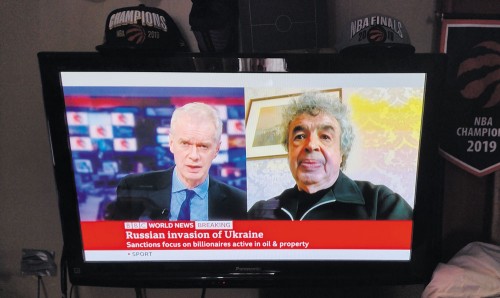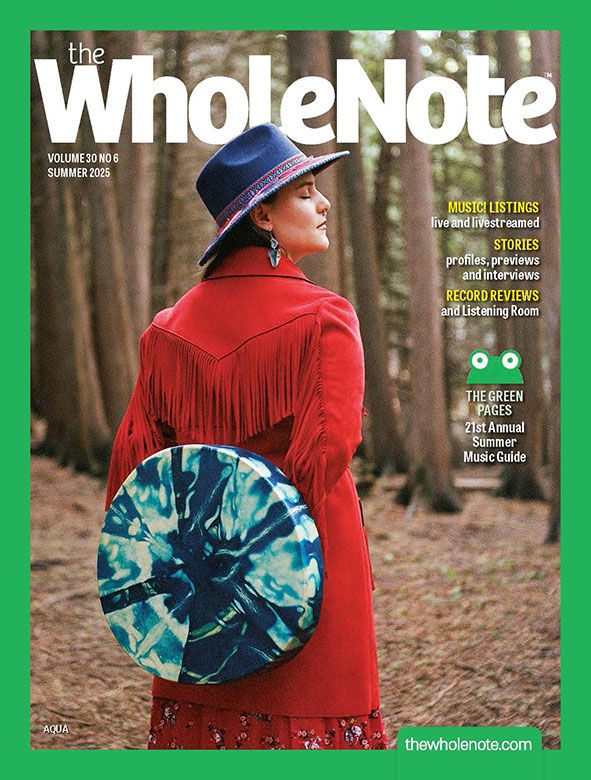In the old normal, for us as magazine publishers, it used to cost around $1 to print and distribute one copy of an issue this size. In 2022’s post-pandemic pre-dawn, when it’s still too early to see whether the sky is really blue, the cost of printing alone is double that amount. Grim insider joke: if you want to know what the unit cost for printing the next issue of The WholeNote will be, it’ll be posted right above the pumps at your local gas station.
So whereas, in the old normal, faced with a story lineup like the one we had for this issue, we’d have said “damn the torpedoes” and added pages, instead we had to give more than usually careful thought as to which of those stories have the shortest and longest expiry dates, in terms of topicality. And we had to set aside the ones that will be just as fresh a month from now.
Like Karen-Anne Kastner’s coverage of an unusual recent concert, for an invited audience of private music teachers, in a filled-to-capacity Koerner Hall, heralding the release of the long awaited 6th edition of the Royal Conservatory’s Celebration Series. This is a significant ancillary resource for piano repertoire, used for decades by tens of thousands of private music teachers across North America. Yes, there were speeches as well.
And like Gloria Blizzard’s searching write-up of this year’s Toronto Arts Foundation’s Awards, (back live again in its normal venue, the Arcadian Court at Queen and Bay), musing on what the phrase “a seat at the table” means in a context like that.
Both stories are on their way.
In the old normal, appearing first in print was what happened with most WholeNote stories, followed by a leisurely stroll onto the website. Increasingly the reverse is the case, with many stories being served better by appearing digitally first, especially when they incorporate elements that print cannot: video and/or audio links; extended photo galleries and the like. So if you haven’t already done so, consider signing up for our e-letter, HalfTones. You’ll be alerted, and linked to, online stories as they are posted. Signup is bottom right on our homepage at thewholenote.com.
And while you are there, make sure to also check the box to receive our weekly listings update. In the old normal we tied our publication dates predictably to the beginning of calendar months, with a couple of double issues thrown in. For the past two years, with event scheduling increasingly opportunistic or hard to predict, we’ve survived, in part, by reducing our publishing frequency to eight issues a year, with each issue covering roughly six weeks.
Weekly listings updates enable us, and you, to keep up with the volatility of the new normal, with the last minute announcements, date changes, postponements and cancellations. And, by the way, “Weekly listings update” doesn’t mean just events for the coming week. Each update offers an overview of the following six to seven weeks. The print listings in this issue of the magazine are, in fact, a snapshot of last week’s digital listings update; and they will already be out of date by next week! It’s a prime example of a situation where the old normal worked less well, for us and you, than what we’re embarked on now. So check the box. Please.
And finally, in the old normal - for the past 20 years, in fact - The WholeNote happily occupied what now seems like acres of space at 720 Bathurst Street. But with occupancy costs on the same upward trajectory as unit costs and gas prices, that too is about to change. We are already in the process of downsizing incrementally and by the late summer or early fall will hope to be cosily ensconced in more modest quarters, a mere stone’s throw from where, as a column in the Kensington Market DRUM, this magazine came into being 27 years ago.
David Perlman can be reached at publisher@thewholenote.com




